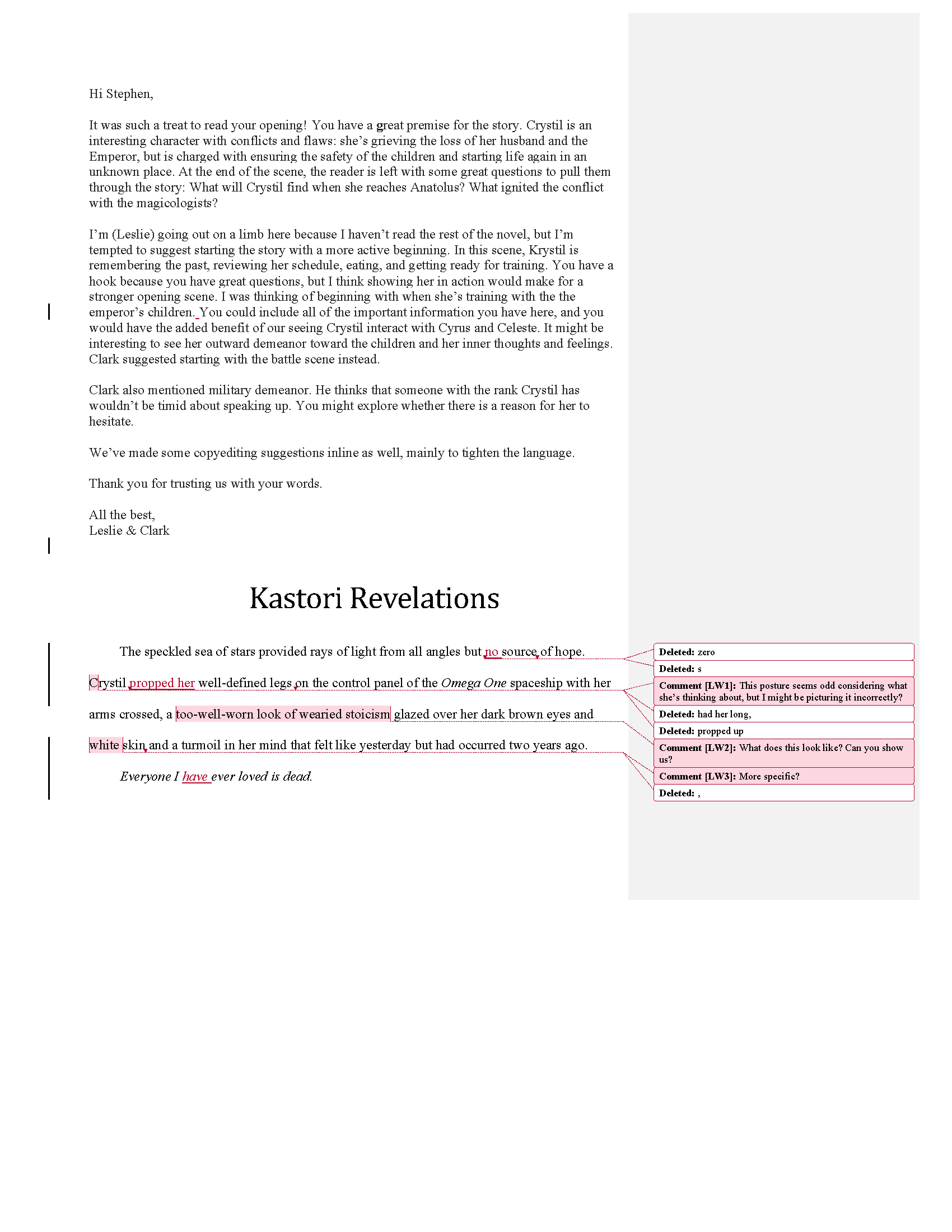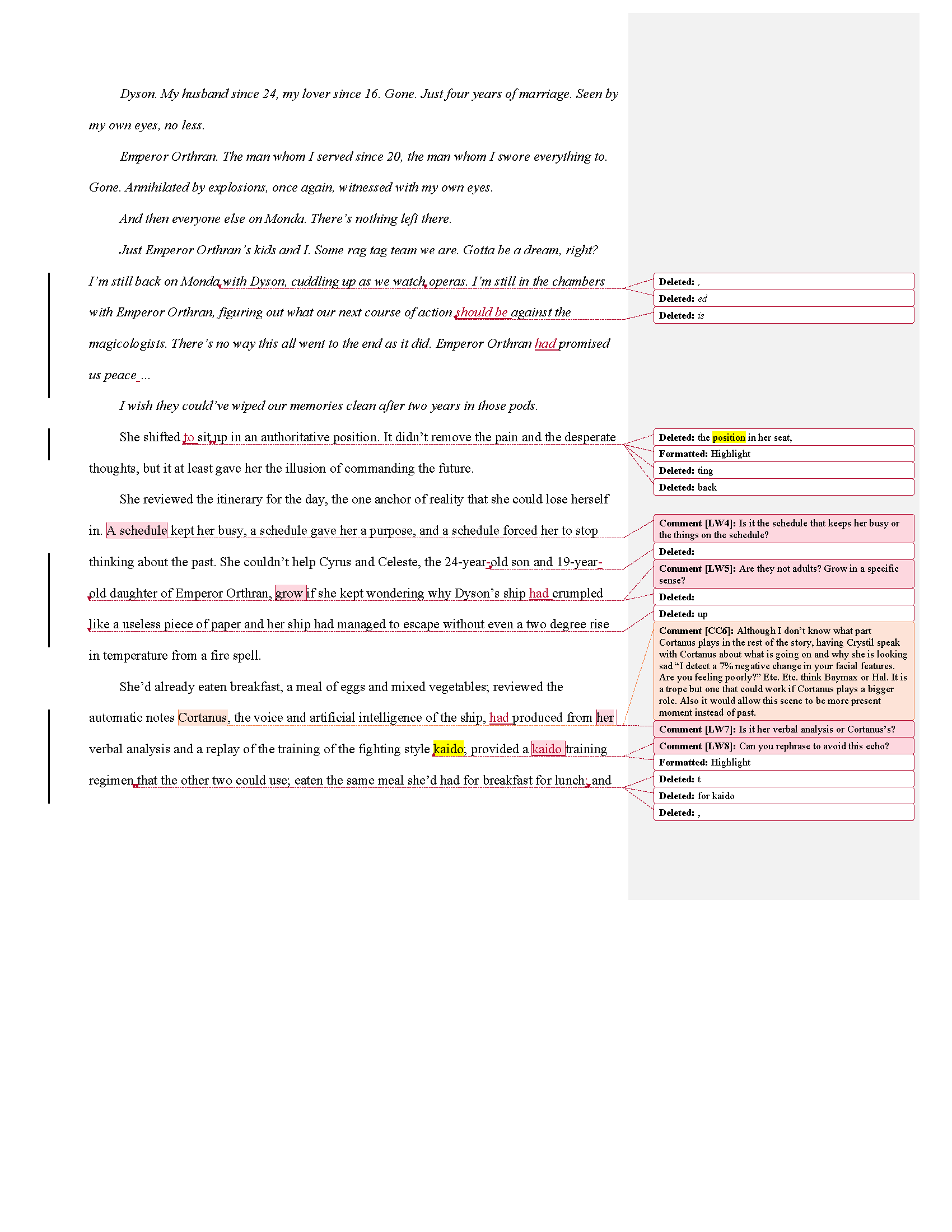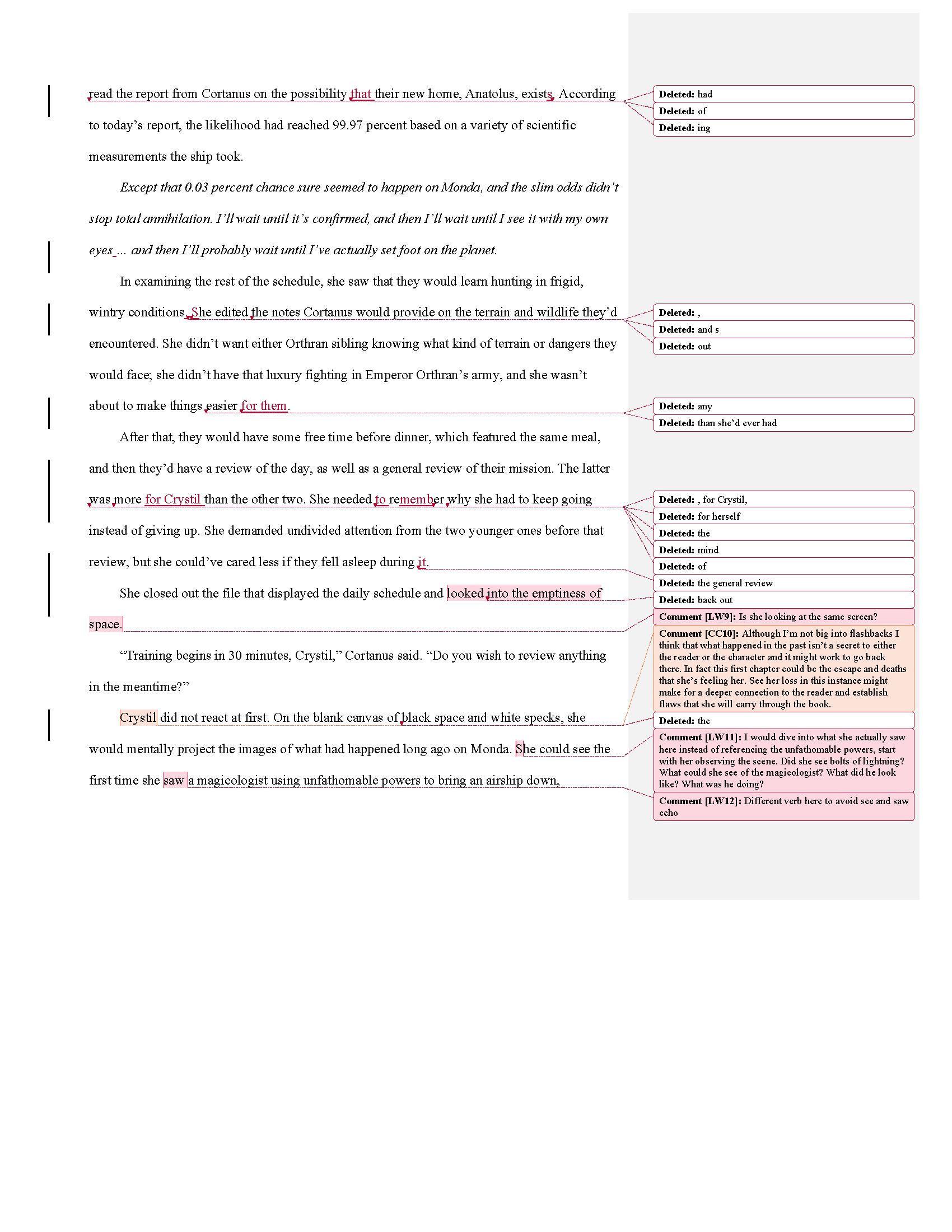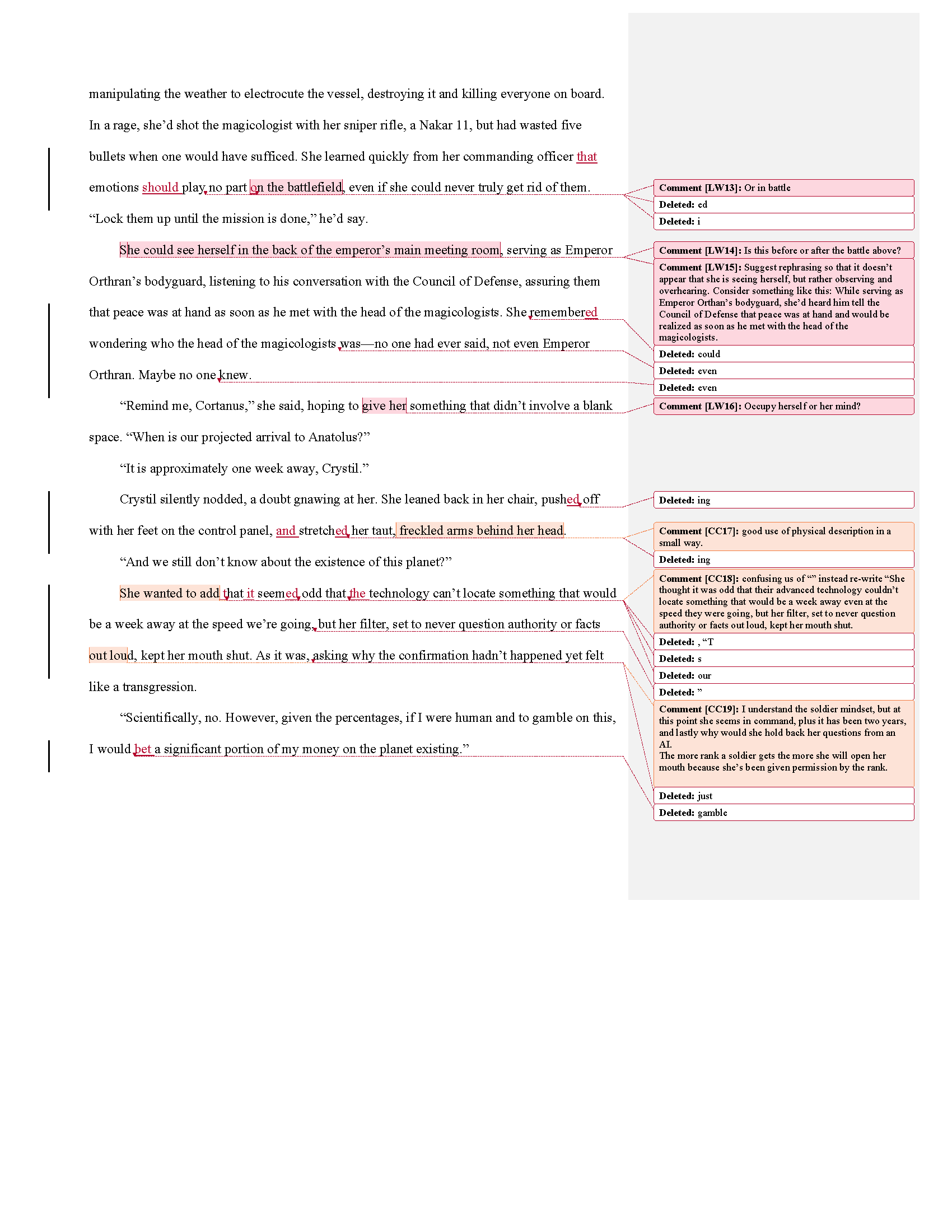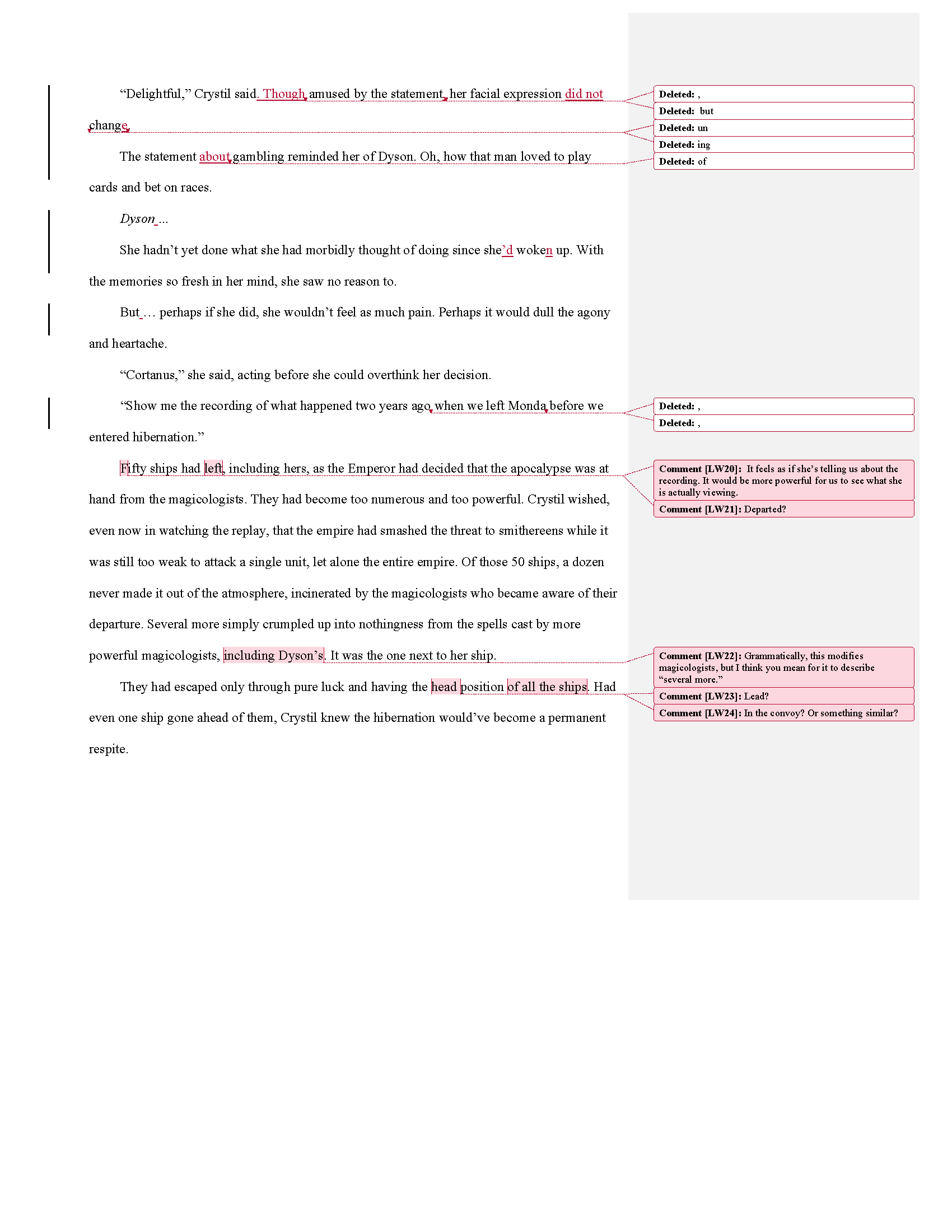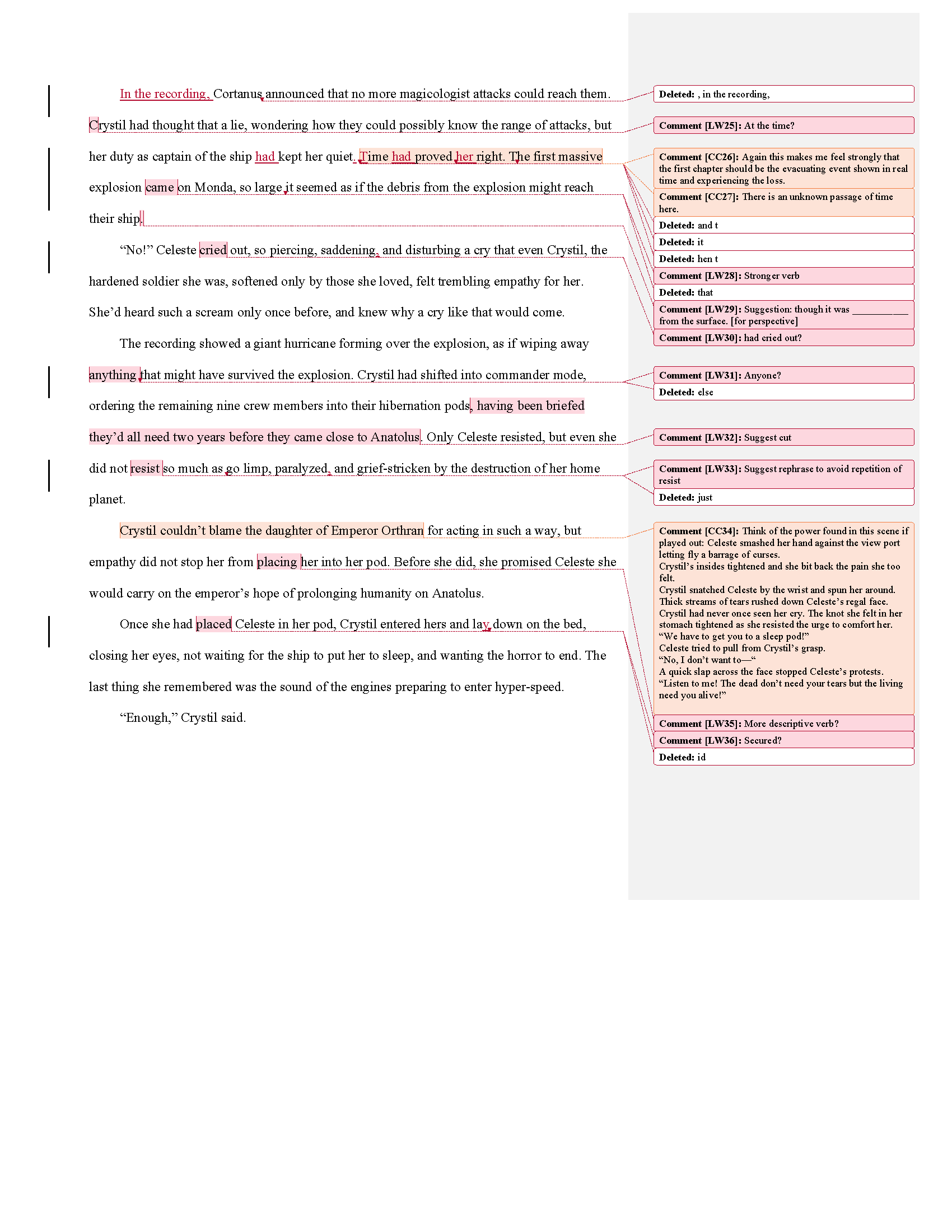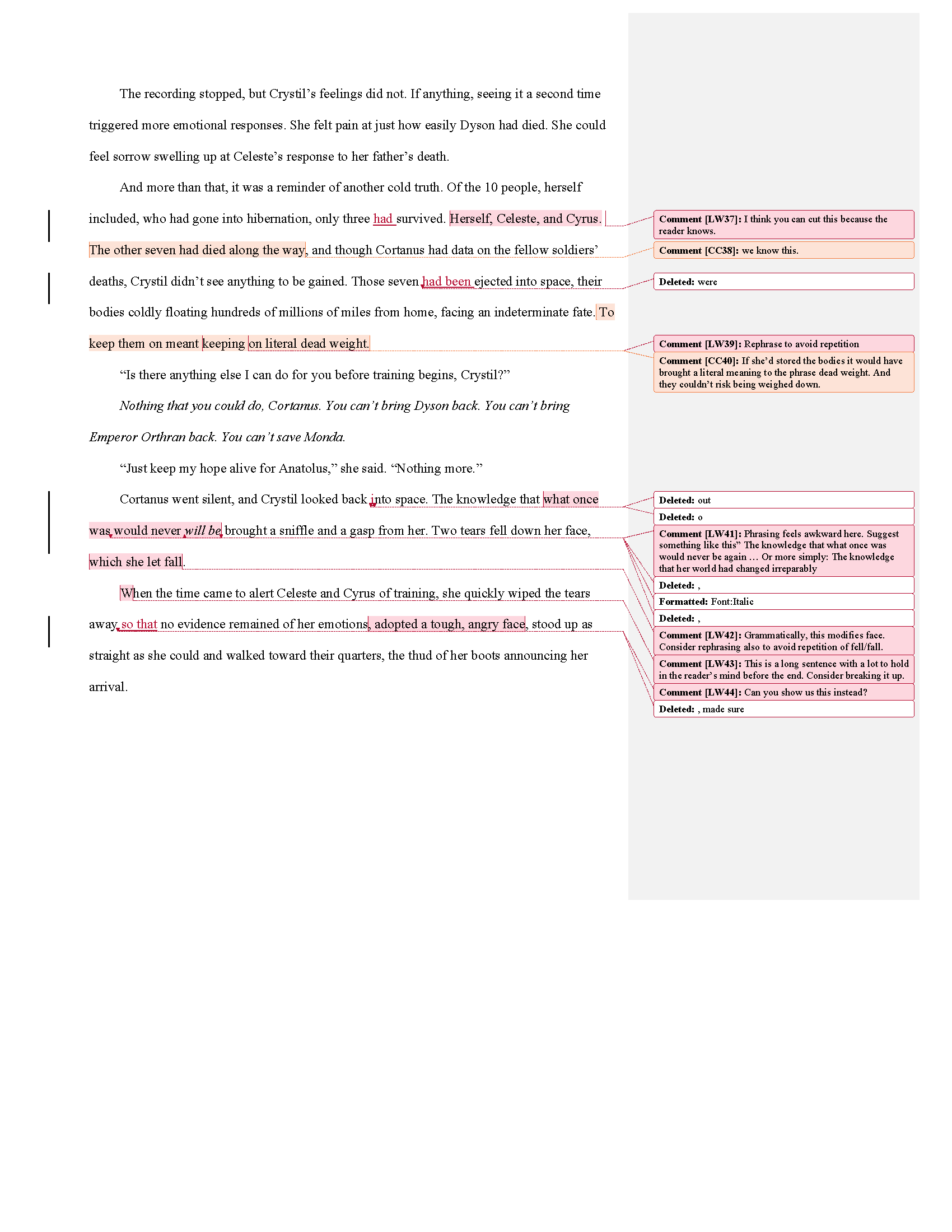Episode Description
In this episode, Leslie and Clark critique the opening pages of Stephen Allan’s Kastori Revelations, a published science fiction/fantasy novel. They discuss story beginnings, indicating the passage of time, action, and military culture.
Listen Now
Show Notes
“Understanding the difference between the flush of initial inspiration and the ways in which your technical imagination then begins to organize the elements of the story is the key to effective beginnings. ”
For the editorial mission this week, consider this list from Jeff VanderMeer's WonderBook: The Illustrated Guide to Creating Imaginative Fiction.
“Most stories require some or all of the basic following elements to be present at the beginning:
1. A main character or characters, presented from a consistent point of view.
2. A conflict or problem.
3. An antagonist (the source of conflict or the problem – a person or, depending on the theme, nature or society, to name just two possibilities; whomever or whatever the main characters are pushing up against, which, put crassly, could be called the ‘villain’ of the piece.)
4. A hint or suggestion of a secondary conflict or problem that may form a subplot or additional complication (This is optional, since it may come into focus later in the narrative.)
5. A sense of action or motion, no matter how static the opening scene.
6. A general or specific idea of the setting.
7. A consistent tone and mood to the language.
”


